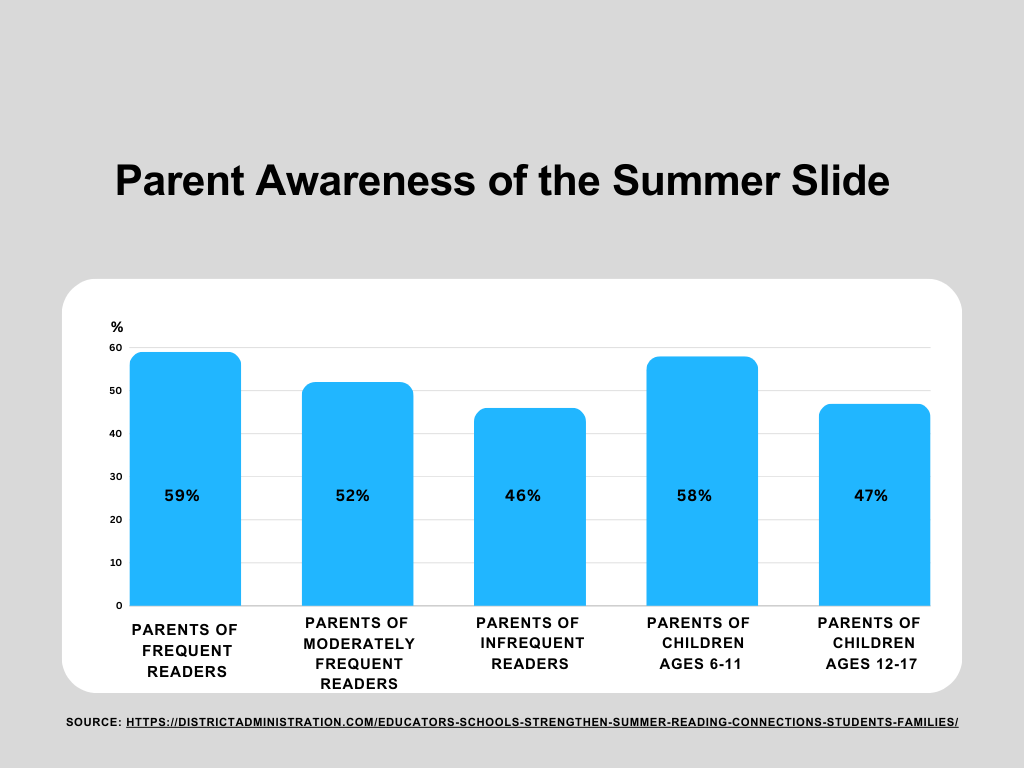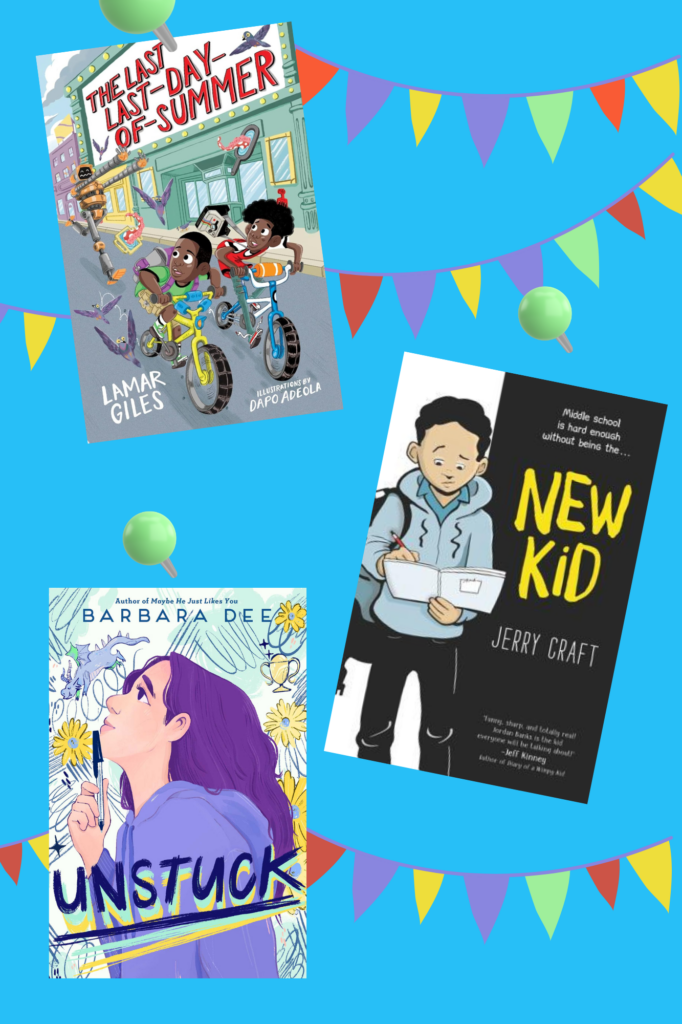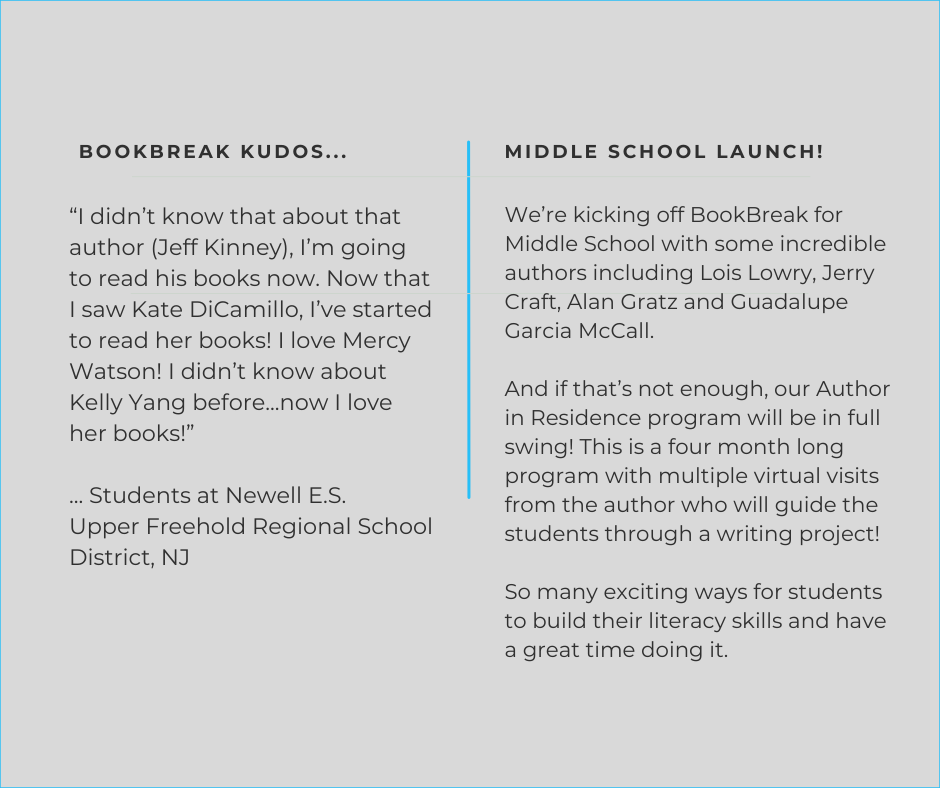How Parents Play A Critical Role
You know it, and I know it, but only 52% of parents are aware of the valuable skills students lose over the summer break. At the same time, 96% of parents believe that summer reading would be helpful for their kids. So where is the disconnect?
As an educator, you are probably already aware that many parents don’t understand the “Why” behind the loss of academic skills in the summer, especially concerning reading. Decades of research indicate that students lose, on average, one month of instructional knowledge over the summer break, known as the summer slide. According to Scholastic Kids and Family reading report, the parents of more infrequent readers are less likely to be aware of the summer slide than parents of moderately frequent or frequent readers:

We can help the parents of our students understand the importance of maintaining skills over the summer, especially in reading. In fact, 75% of parents said that having suggestions for skill-building around their children’s reading would be helpful. This is great news!
The following are the types of resources that parents in the study stated that they would like to have to support their children’s reading:
- Questions or conversation starters about the reading
- A summary of the book or story
- Fun activities that go along with the reading
- Recommendations for the best next book
If you are looking for age-appropriate books to recommend, feel free to share our summer reading lists with your families. Looking for summaries? The links below are book trailers for a few of the authors participating in our BookBreak Author Talks next school year.

- Eyes That Kiss In The Corners, by Joanna Ho (K-1)
- The First Cat In Space Ate Pizza, by Mac Barnett (2-3)
- The Ice Cream Machine, by Adam Rubin (Grades 4-5)

- The Last Last Day of Summer, by Lamar Giles (4-5)
- New Kid, by Jerry Craft (6-8)
- Unstuck, by Barbara Dee (6-8).
More ideas for you to share with your parents:
- Let them read what they want. When presented with age-appropriate options, kids enjoy making their own choices.
- Public libraries plan for summer reading, and offer free programs for children and events to encourage them to read more and support their goals. Using the public library helps provide easy access to books, and some libraries have no limits!
- Make reading a part of every day – even if it’s only 15 minutes.
- Taking a long car ride? Audiobooks can be an option and help improve comprehension.
It takes a village to build regular reading habits. Keeping the momentum going during summer break is critical for ingraining these habits. The more they read, the better they get at it, and the easier it is to build on those skills. This makes the transition back to school smoother for students, parents, teachers, and librarians.
Until next time…

